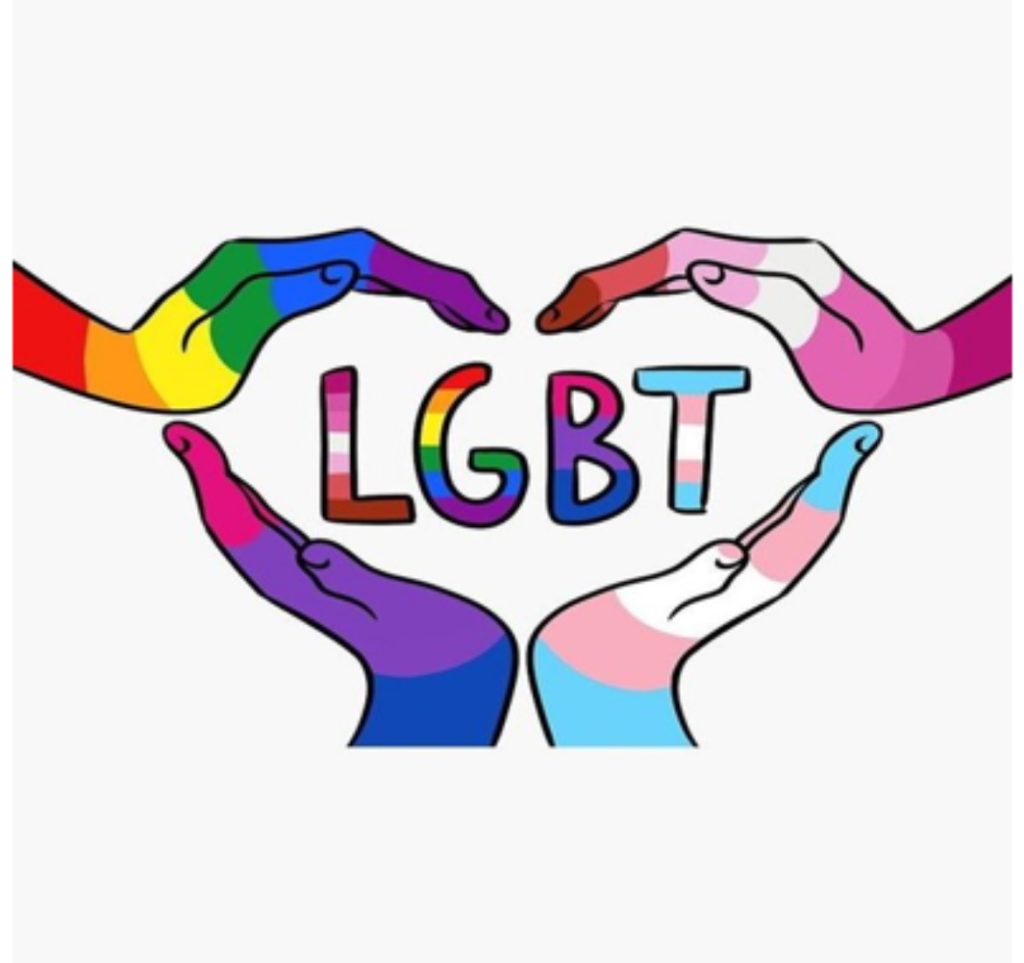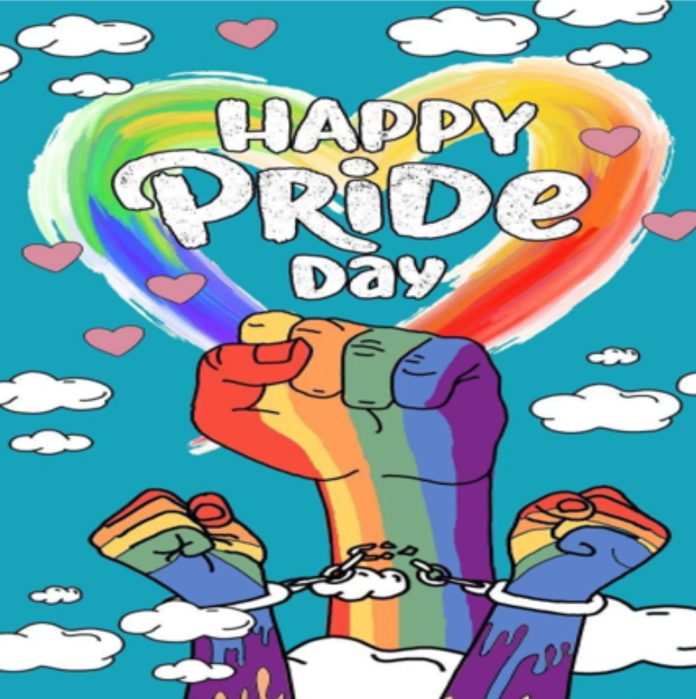The month of February does not come only with the cold touch of winter, but it also brings us a wonderful time of joy and of appreciation and respect of our diversity and our strength—it’s LGBT+ History Month . The annual celebration of this pride is not just a chance for the rainbow flags be hoisted and waved proudly; it is a vital opportunity to remember the on-going struggle, achieve or defeat the social, physical, mental, cultural and legal plights of LGBTQI persons worldwide.
Although February has already passed, the vision of LGBT+ History Month continues year-round. It is a time which involves not only celebration of achievements but also the recognition that fight for equality continues.
In March 2024, the LGBT+ movement will remain the trending issue of the moment and is truly necessary for our society. One of the most recent developments in this regard is the Greek Parliament’s decision to make same-sex marriages legal This decision put Greece on the path of becoming the first of the Orthodox Christian countries to recognize same-sex unions, in particular. This is a groundbreaking development for LGBTQ+ rights in the region.
The story of LGBT+ History Month goes back to the late 1960s, when equality and recognition of this group were at stake . Over history, numerous people from the LGBT+ community have faced discrimination, persecution, and violence just because of who they are. From the Stonewall riots in 1969, a historical event that has come to be considered a turning point for the gay rights movement, to the contemporary fights for the right to same-sex marriages, protection of transgender rights, and antidiscrimination initiatives; forward marching towards full acceptance has taken a long and difficult road.
SUBU (Student Union at Bournemouth University) gives its all-out support to the LGBTQ+ community and is an unquestionable ally. By using various programs and resource facilities, SUBU creates an inclusive environment where students and staff feel appreciated and comfortable at the university because of their orientation or gender identity. SUBU helps to achieve this by organizing various educational workshops and events that provide an avenue for discussions and the expression of various cultural groups. The club’s efforts also help to deepen the sense of diversity and culture that is experienced and celebrated on campus. As for the partnership with worldly ventures such as Dorset Eye, the university publicises the voices of individuals and engages in activities to seek and support LGBTQ+ rights, thus obeying the commitment of professing equality and diversity.
As a report by the Human Rights Campaign (HRC) states, there were at least 28 transgender or gender non-conforming people fatally shot or killed in other violent ways in the United States alone in 2021, which makes this year the most deadly one for transgender individuals of all times so far . Furthermore, US National Coalition of Anti-Violence Programs (NCAVP) recorded 41% increase in hate violence-related homicides among LGBTQ+ and HIV-affected individuals, according to the analysis of 2020 statistics.

LGBTQ Campaign
The discrimination towards the LGBT+ community is deeply entrenched in different fields of life. In the survey, 19% of gay or transgender individuals in the US have been refused healthcare services because of their sexual orientation or gender identity, and 47% of them had problems with employment discrimination .
The trials of transgender and gender non-conforming men and women are the most pronounced. Per the U.S. Transgender Survey by the National Center for Transgender Equality, about one-third of transgender individuals encountered homelessness at least once in their lifetime, while 29% of them got rejected from using the restroom of their identified sex in the past year .
Still, LGBT+ History Month is about the strength and success of the community in spite of these drawbacks. Globally, from the first Pride parades of the 1970s to the landmark Supreme Court decision that legalized same-sex marriage in 2015, LGBT+ individuals with partners and allies have progressed to the point of equality and acceptance .
In reality, the answer to all this lies in creating a society where everyone is respected, honored, and embraced for who they are. LGBT+ History Month serves as a way of reminding ourselves that present equality and acceptance still have a long way to go and that more work needs to be done concerning the LGBT+ community . As a result of uniting to encourage and lift each other up, people can live in a world where we can all express ourselves in a true and safe manner, without discrimination or prejudice. In their National Survey on LGBTQ Youth Mental Health 2021, it is stated that 42 percent of the youth of the LGBTQ+ community considered suicide attempts to be very serious within the last 12 months, while transgender and nonbinary youths were the most vulnerable.
On the other hand, researchers have also found evidence of the unfairness in health care access and outcomes for LGBT+ people. A study published in the American Journal of Public Health showed that LGBT+ people were more likely to report unmet healthcare needs compared to heterosexual people, which further points to the systemic problems connected to getting a good quality of treatment. The need for governments, healthcare providers, teachers, and the whole society to work together to overcome these disparities is almost an urgent matter. Impartiality and non-discrimination laws, inclusive healthcare policies, and culture-sensitive education and training programs are some of the key steps that need to be taken to create a more equitable and inclusive society for LGBT+ people .
To summarize, LGBT+ History Month captures the essence of both retained progress and the on-going obstacles the LGBT+ community has to surmount. Despite being a gender equality accomplishment, many women still struggle with discrimination/disparities in the medical sector, jobs, and safety matters. It emphasizes how all of us together can do much more, which includes representatives of various authorities, healthcare professionals, educators, and society overall working together in order to better this situation where all of humanity coexists peacefully and equally.
References
Berman, S.B., (2021). LGBTQ+ History in High School Classes in the United States Since 1990 (p. 296). Bloomsbury Academic.
Goodman, S., (2022). “We’re Not Gay One Month Out of the Year… We’re Always Who We Are.” Exploring Connections Between Organizations, Pride Branding, and LGBTQ+ Publics.
Mehra, B. and Jaber, B.S., (2023). “Don’t Say Gay” in Alabama: A taxonomic framework of LGBTQ+ information support services in public libraries—An exploratory website content analysis of critical resistance. Journal of the Association for Information Science and Technology, 74(8), pp.954-970.
Robinson, K.H., Townley, C., Ullman, J., Denson, N., Davies, C., Bansel, P., Atkinson, M. and Lambert, S., (2020). Advancing LGBTQ+ safety and inclusion: Understanding the lived experiences and health needs of sexuality and gender diverse people in Greater Western Sydney.
Sanders, S., (2020). Growing up Needing the Past: An Activist’s Reflection on the History of LGBT+ History Month in the UK: An Activist’s Reflection on the History of LGBT+ History Month in the UK. SQS–Suomen Queer-Tutkimuksen Seuran Lehti, 14(1-2), pp.45-55.
If you like our content, join us in helping to bring reality and decency back by SUBSCRIBING to our Youtube channel: https://www.youtube.com/channel/UCQ1Ll1ylCg8U19AhNl-NoTg AND SUPPORTING US where you can: Award Winning Independent Citizen Media Needs Your Help. PLEASE SUPPORT US FOR JUST £2 A MONTH https://dorseteye.com/donate/







